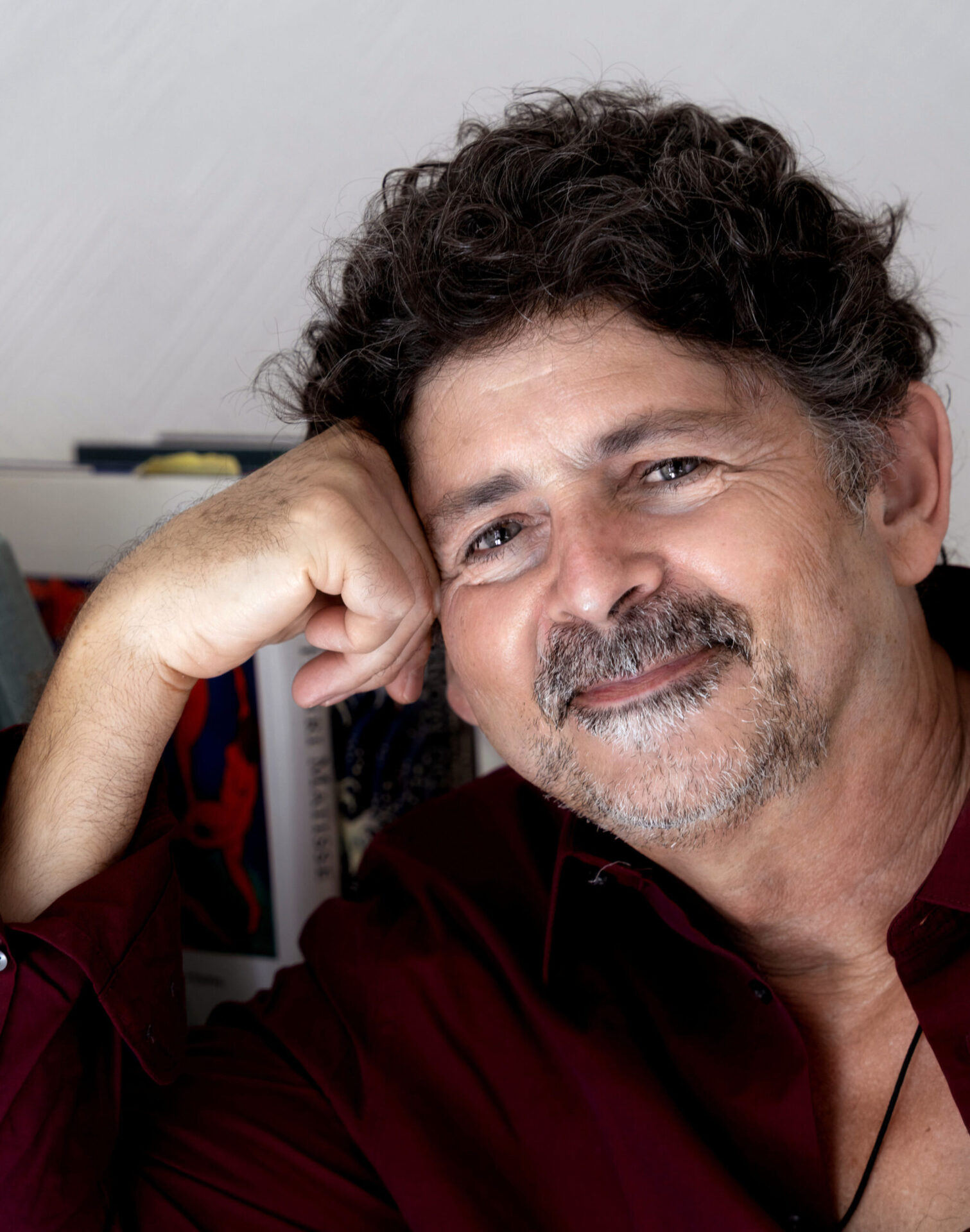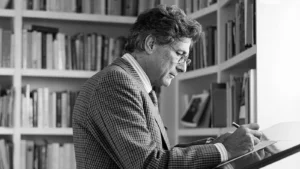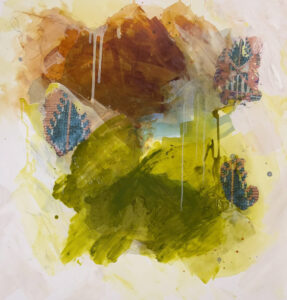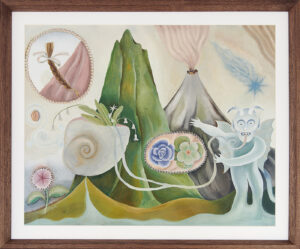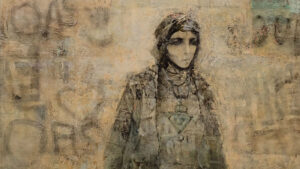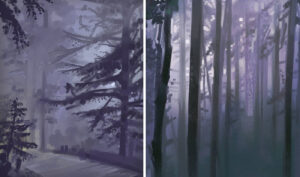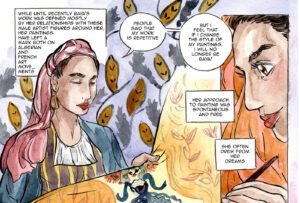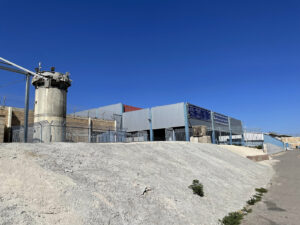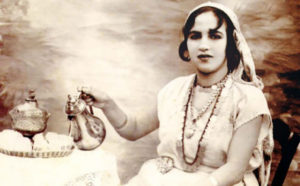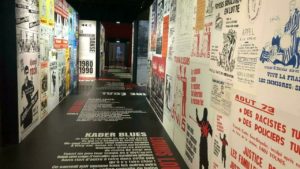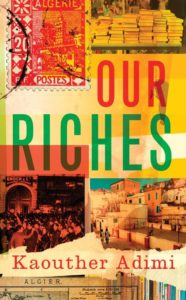Activist and patriot Anna Gréki’s poetry shows all that it is not only possible but necessary to fight against colonization in all its forms and for the dignity of all.
Algeria, Capital: Algiers, poems of Anna Gréki, a bilingual edition
Translated by Marine Cornuet, with an introduction by Ammiel Alcalay
Pinsapo Press/Lost & Found 2024
ISBN 9781958675021
Upon receiving an ARC of Algeria, Capital: Algiers, by Anna Gréki, I asked myself how many Algerian poets had previously crossed my desk. Like many young writers, I started out writing poetry as well as prose, and I got the standard US college inculcation, ranging from Byron, Yeats and T.S. Eliot to Wallace Stevens, and Emily Dickinson. Later, while studying in Paris, I became familiar with the work of Rimbaud, Cocteau, and my personal favorites to this day, Rainer Maria Rilke and Federico García Lorca. Still no Algerian poets, although the work of Kateb Yacine and Assia Djebar came to my attention (more about Kateb Yacine shortly). Later still, I got to know some of the Moroccan writers and poets, many of whom are introduced to the western reader in English translation in Deborah Kapchan’s 2019 volume, Poetic Justice: An Anthology of Contemporary Moroccan Poetry. Still no Algerian poets, other than a vague familiarity with the late Jean Sénac, who was assassinated in Algiers in 1973, a story we’ll save for another day.

Algeria, Capital: Algiers was originally published in French in 1963, and all of the poems in the book were written while Gréki was in a French prison in Algeria, for supporting her native country’s fight for independence. Described in the original preface to the book by Mostefa Lacheraf as an activist and a patriot, as a member of the resistance, Gréki was bound to displease her French occupiers. But perhaps what makes her case most fascinating is the fact that she was born in Batna, Algeria as Colette Anna Grégoire, daughter of a family of French settlers. Both of her parents were teachers, and after obtaining her high school diploma from a lycée in Bône, Algeria, she went to study at the Sorbonne in Paris. Despite her French roots, Collette Anna Grégoire always felt herself to be Algerian, born and raised.
Anna Gréki is now most often described as a French-speaking Algerian writer and poet, ignoring her settler family’s background. You could think of her as an insider-outsider, Algerian by birth, but of French heritage. I asked her translator, Marine Cornuet, whether it wouldn’t be fair to call Anna Gréki a pied-noir, even though she fought for Algerian independence (unlike her more famous compeer, Albert Camus).
“For me, the fact that Colette Grégoire came from a family of settlers (in the original sense, not in the sense of large landowners or industrialists) was one of the first elements that caught my attention and magnetized me to her poetry … And I completely agree with you, her particular position as a pied-noir who fought for the independence of Algeria gives her a status that is both relatively protected within the system and in transgression of it. For me, Gréki’s poetry shows all those who might find themselves in this position today that it is not only possible but necessary to fight against colonization in all its forms and for the dignity of all.”
Cornuet, who became a veritable student of Gréki’s work and life, explains, “I was able to read letters and notes that Grégoire/Gréki wrote about her identity, and she rejected the term pied-noir to describe herself. She called herself an ‘Algerian of French descent.’ And as the term pied-noir was mainly used from 1954 (I believe) to refer to the French settlers in Algeria who went to live in France during and after the revolution, and as Gréki, on the contrary, returned to live in Algeria, we did not insist on using this term.”
To judge from her poetry, Anna Gréki — who came by her pen name when she combined her last name with that of her husband, Jean-Claude Melki — was a lover and a fighter. As she writes in “With Rage in My Heart”:
I can no longer love but with rage in my heart
It’s my way of having a heart of plenty
It’s my way of defeating pain
It’s my way of setting ashes ablaze
Through sheer heart crushes and rage
[…|
I can no longer love but with rage in my heart
With fire in my blood, love like combat
I am as merciless as a brand-new brain
That knows satisfaction from its certainty
[…]
A defused grenade the heavy night rolls
Beneath its pink oleanders where the sea ferments
With the smell of warm tar in the waves
I think of friends who died before they could be loved
Of those who were judged before they could be heard
I think of friends who were murdered
Because of the love they knew how to give
Gréki’s poetry is beautiful in the original and in Cornuet’s sensitive translation. It is as much about her love for Algeria as it is an ode to resistance to colonization. In the book’s introduction, Ammiel Alcalay points out that her work, “has never, as far as I know, been put in the larger context of Arab prison literature. And yet, the poems in Algeria, Capital: Algiers were all written during Gréki’s incarceration, following interrogation under torture.”
He urges the reader “to understand the radical nature” of Gréki’s “formal innovations, despite her writing in French. The decades following Algerian independence, so full of hope, make evident that writing and form in what we generally refer to as the Middle East — with its own archipelagos of incarceration and repression, from the years of lead in Morocco to Saddam’s Iraq, from Saudi Arabia and the Gulf to occupied Palestine and Syria — would be profoundly affected by the fundamental problems of representing the extreme experiences undergone by individuals in such situations and the further repercussions on a society as a whole.”
After her Sorbonne studies, Gréki returned to teach in Algeria in 1955. A militant and Algerian Communist Party sympathizer, inspired by her friend Ahmed Inal (who would be killed by the French army in 1956), in March 1957 Gréki was arrested and interrogated in the midst of the Bataille d’Alger (Battle for Algiers) by French paratroopers. Following weeks of torture, she was interned in the Berberousse prison in Algiers, where she wrote her first poems. The following year Gréki was expelled from Algeria and found work teaching in Avignon from 1959 to 1961. She married Jean-Claude Melki in 1960 and then went to Tunis where she worked for Algeria’s National Liberation Front, better known as the FLN.
A fellow traveler, Jean Sénac was an early booster of Gréki’s poetry. In 1971, he wrote that from 1945 to 1962, Algerian poetry in the French language presented itself “as a fresco of misfortune and tenacious experience.” He suggested that Algerian poetry and Anna Gréki “braced against the mass graves, taking its breath and its face from 1954 onwards, it would for a few years put words at the service of the liberation of the territory. During this period, she was, like our struggle, an insurrection of the spirit.”

Gréki is seen today by Algerian literati as a major world poet, yet rarely have you seen her name in the canon that includes her generation’s best-known poets, including Sylvia Plath and Forugh Farrokhzad, much less male greats of the 20th century, such as Rilke and Lorca — not just because she was less prolific and died young, but because we are far less accustomed to finding Algerian or Moroccan or Tunisian poets in our libraries and bookstores.
As it happens, Sénac and Gréki were not the only Algerian poets to write in French. Renowned the world over for his novel Nedjma (first published in France in 1956, in the midst of Algeria’s war for independence), Kateb Yacine was also a poet. He considered French to be the language of the colonizer, but also the Algerians’ “spoils of war.”
“Francophonie is a neocolonial political machine that only perpetuates our alienation,” he declared in 1966, “but the use of the French language does not mean that one is the agent of a foreign power, and I write in French to tell the French that I am not French.” Yacine would later add, “A language belongs to the one who violates it, not to the one who cherishes it.”
For Anna Gréki, as well as for Sénac and Yacine, French was both friend and foe. Quoting Édouard Glissant in his introduction, Alcalay reminds us that, “Translation is a weapon against imperialism and the domination that takes place between languages … To translate, means finding a way to give Anna Gréki back to Algerians whose only language is Arabic. It becomes a way for the two languages to cohabit, to show that the ‘target’ language doesn’t always have to be dominant.”
Although she didn’t write in Arabic, Anna Gréki was as Algerian as the “oued,” a river or stream, and “gandoura,” a tunic, thawb or galabeya. She often included these elements in her poems. In fighting against the racism inherent in her colonial French roots, Grégoire/Gréki is in the tradition of all poets who turn on their own identities and geographies to embrace the larger brotherhood of man.




